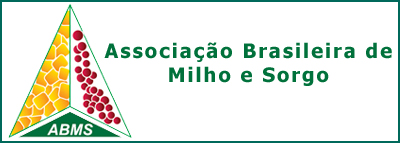PHYSIOLOGICAL RESPONSE OF CONVENTIONAL AND TRANSGENIC MAIZE TO WATER STRESS
DOI:
https://doi.org/10.18512/rbms2020v19e1144Palavras-chave:
Zea mays, Bacillus thuringiensis, chlorophyll fluorescence, genetic modificationResumo
Genetic modifications of plants can affect their ability to use environmental resources. It is known that the anthropic action has caused global climate changes, such as increases in temperature and drought. In view of this, the objective of this study was to evaluate if the addition of the Bt gene influences the physiological performance of isogenic maize hybrids grown under water stress and optimal conditions. Three Bt and non-Bt maize hybrids (Agromen 30A95, Dow 2B707 and BG 7049Y) were cultivated in soil with moisture content at 60% (water stress) and 100% of the field capacity (FC). Among the hybrids, the 30A95 presented greater variation between Bt and non-Bt hybrids in regard to physiological variables. The addition of the Bt gene practically had no impact on the photosynthetic performance of the 2B707 and BG7049 hybrids. The presence of the Bt gene increased the sensitivity to water stress in the hybrids, with reduction of maximal fluorescence and chlorophyll content in the plants. Regardless of the genetic factor (Bt or non-Bt), water stress reduced transpiration, stomatal conductance, photosynthetic rate, and maximum quantum yield of the PSII in maize plants. It was concluded that the presence of the Bt gene in maize indicates a reduction in the photosynthetic potential of the plant grown under water stress.
Downloads
Publicado
Como Citar
Edição
Seção
Licença
Autores que publicam nesta revista concordam com os seguintes termos:- Autores mantém os direitos autorais e concedem à revista o direito de primeira publicação, com o trabalho simultaneamente licenciado sob a Creative Commons Attribution License que permitindo o compartilhamento do trabalho com reconhecimento da autoria do trabalho e publicação inicial nesta revista.
- Autores têm autorização para assumir contratos adicionais separadamente, para distribuição não-exclusiva da versão do trabalho publicada nesta revista (ex.: publicar em repositório institucional ou como capítulo de livro), com reconhecimento de autoria e publicação inicial nesta revista.
- Autores têm permissão e são estimulados a publicar e distribuir seu trabalho online (ex.: em repositórios institucionais ou na sua página pessoal) a qualquer ponto antes ou durante o processo editorial, já que isso pode gerar alterações produtivas, bem como aumentar o impacto e a citação do trabalho publicado



